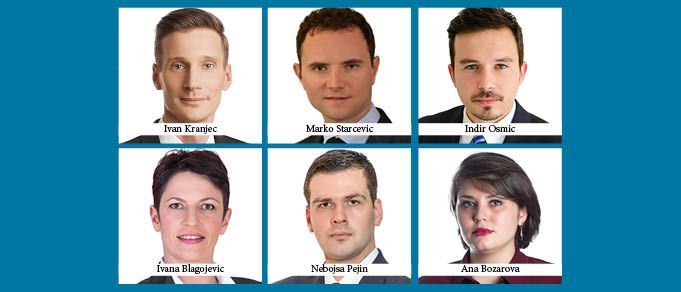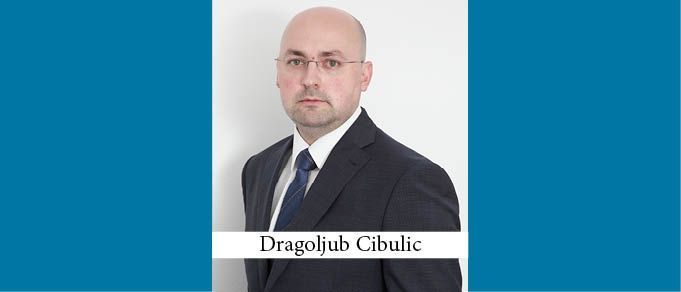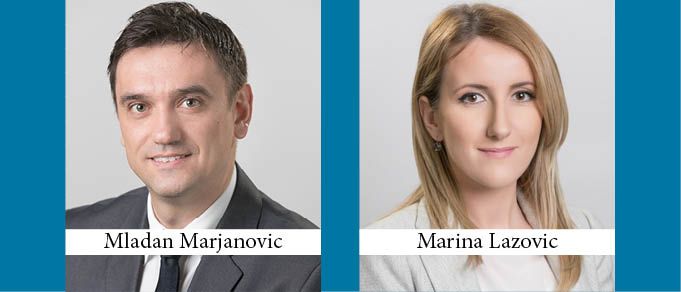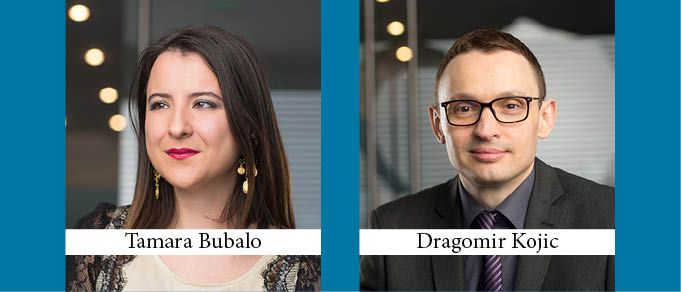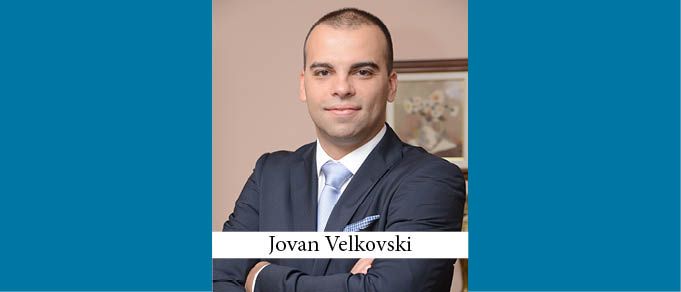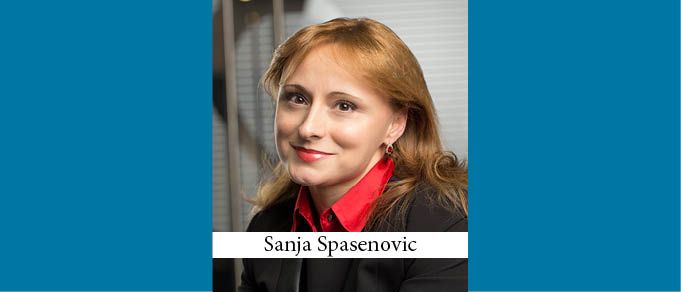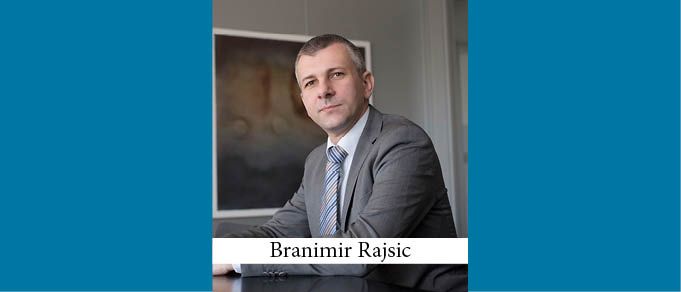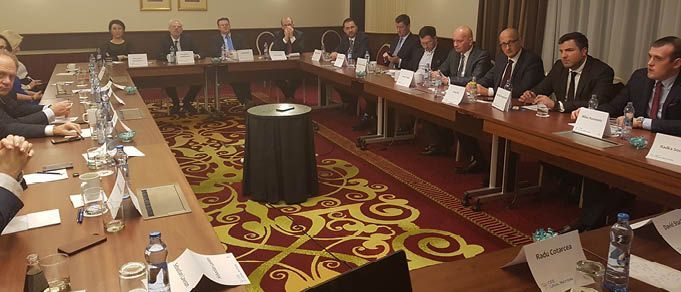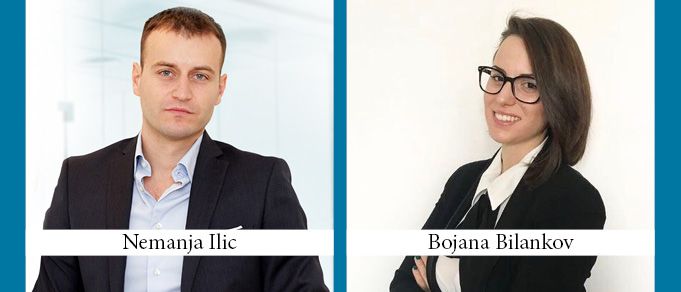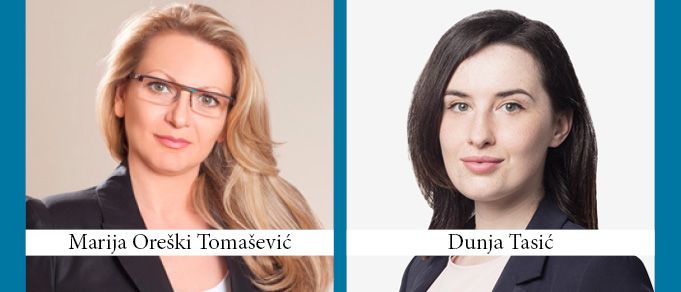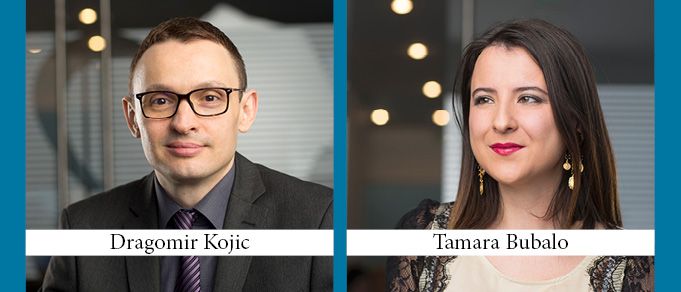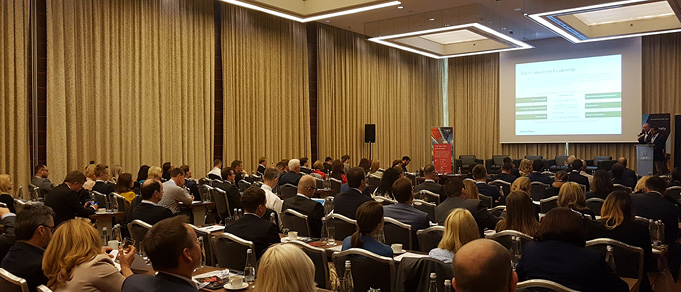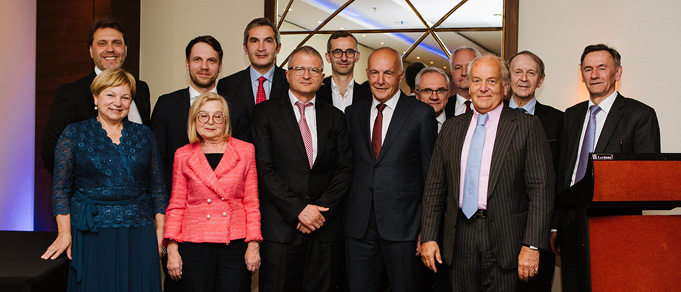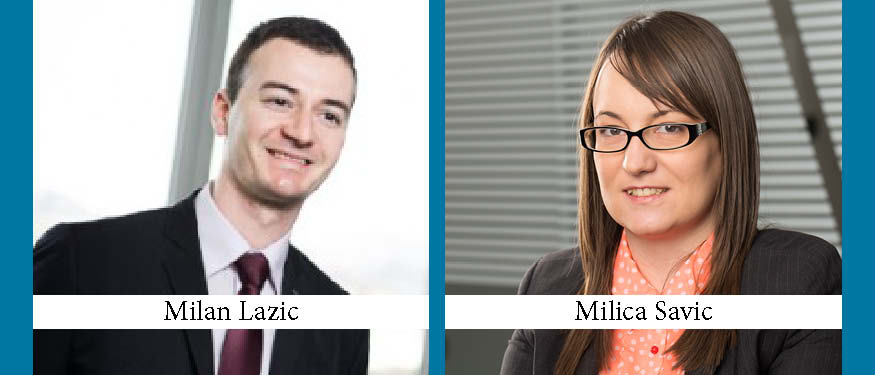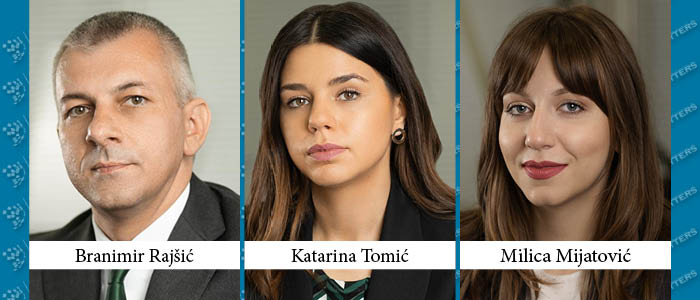Implementation of large-scale real estate development projects almost always requires the simultaneous development of new or upgrades to existing public infrastructure necessary for the unimpeded use of the main project. Back in the old days, real estate development projects suffered, from time to time, from slow public infrastructure development since the relevant public authorities either had no interest in or had no available funds to develop the missing infrastructure.
A Night of Celebration at CEE Deal of the Year Awards Banquet in Prague
The winners of the 2017 CEE Deal of the Year Awards were announced at the first ever CEE Legal Matters Deal of the Year Awards Banquet last night in Prague. The biggest smiles in the joyous and music-filled celebration of CEE lawyering, perhaps, were on the faces of Partners from Avellum and Sayenko Kharenko, which, along with White & Case and Latham & Watkins, won the award both for Ukrainian Deal of the Year and CEE Deal of the Year for their work on the 2017 Ukraine Eurobond Issue (a story initially reported by CEE Legal Matters on October 2, 2017).
Top Six Tax Topics Across SEE
Slovenia: Fine-Tuning of the Tax System
In the beginning of 2018, Slovenia introduced several minor and mainly administrative changes to its tax legislation, mostly addressing and resolving inconsistencies in the legislation that had been detected in practice.
Expat on the Market: Interview with Patricia Gannon of Karanovic & Nikolic
Patricia Gannon is a founder and Senior Partner at Karanovic & Nikolic, where she focuses primarily on the management, business development, strategy, and expansion of the firm. Gannon qualified as a Solicitor in Ireland and after a short period working at the European Commission in Brussels she moved to Serbia and founded the firm. She is a committed advocate of corporate philanthropy, and was amongst the founding members of the Serbian Charity Forum, an umbrella forum of leading foundations in the country.
Upcoming Changes to the Serbian Renewables Support Scheme and Energy Community Involvement
The Serbian Minister for Mining and Energy recently stated that Serbia will manage to fulfill its obligation and reach the target of 27% of total energy consumption from renewables by 2020. The statement followed a stream of positive news in relation to development of several large-scale wind power projects in Serbia, such as Cibuk I, Kovacica, and Alibunar.
Bankruptcy in the Spotlight in Serbia
The past decade was rather dynamic in terms of the development of the legal framework for bankruptcy in Serbia, as, since its adoption in 2009, the Bankruptcy Law has undergone several amendments, most recently in late 2017, designed to improve the efficiency of the bankruptcy proceedings.
Geographical Indications of Origin in Serbia: Where the Past Fuels the Future
Geographical indication of origin, this very peculiar form of industrial property protection, has undergone a revival phase over the past few years, becoming omnipresent not only within natural circles of interest, but also amongst the Serbian public at large.
Inside Insight: Interview with Jovan Velkovski, GC of JAT Tehnika
Jovan Velkovski is the Head of Legal at JAT (Yugoslav Airlines) Tehnika, an Aircraft Maintenance Repair & Overhaul Center in Belgrade. Prior to joining the company, he worked as a Senior Legal Advisor at Privredna Banka Beograd, where he gained professional experience in bankruptcy cases.
Electronic Documents: Will They Prevail or Exist in Parallel With Hard-Copy Documents?
In this era of digitalization, where legal frameworks around the world are rapidly changing to cope with revolutionary developments in the IT sector, the Serbian Government is following a similar path. Serbia is in the EU accession process and is thus obliged to harmonize its legislation with EU laws. One such law is EU Regulation No. 910/2014 on electronic identification and trust services for electronic transactions in the internal market (the “Relevant EU Regulation”).
The Corner Office: Associate Mistakes
In The Corner Office, we invite Managing Partners at law firms from across the region to share information about their careers, management styles, and strategies. Our question this time: “What mistake do young associates commonly make that is most frustrating for you?”
The VAT Treatment of Electronically Supplied Services in Serbia
The steady growth of the digital products market and an increasing demand for digital products required an adjustment to the Serbian VAT rules applicable to the supply of electronically supplied services (ESS), and that adjustment finally occurred in 2017. Combined with new rules on the VAT registrations of foreign suppliers, VAT obligations related to ESS became more straightforward.
Experts Gather in Prague for CEE Legal Matters’ Annual Year-End Round Table
On Thursday, November 30th, leading legal practitioners from across Central and Eastern Europe gathered in Prague to help CEE Legal Matters celebrate its fourth successful year as the leading chronicle of the legal industry in the region, participating in an expert Round Table conversation about the year just concluded and enjoying an evening of dinner, drinks, and bonhomie.
Online Streaming – Piracy or Internet Marketing?
The digital era brought us new ways of distribution of media content, one of them being the performance of services of online media platforms. Since this is a relatively new kind of business activity, it is necessary to analyze the way it fits within the provisions of Serbian legal system. The major question in this respect pertains to potential copyright and related rights infringement.
Employee Leasing in Serbia Still a Grey Zone
Leasing of employees – a situation in which employment agencies hire employees and act as their formal employers and then lease them to perform actual work for their client companies – has become a frequent phenomenon in Serbia the past few years.
Serbia’s Intellectual Property Rights Enforcement Overview
Intellectual property infringement through the circulation and sale of counterfeit goods is still very much both a global and a local issue. As modern day counterfeiting is now acquiring more sophisticated forms involving a plethora of new and usually unsuspected goods (for example, pharmaceuticals) and with the intent of not only existing on the black markets but infiltrating into the legal market flows as well, we are faced with the need for a more aggressive approach requiring first and foremost improved legislation and subsequently more efficient enforcement activities.
Third Annual GC Summit in Warsaw the Biggest Yet
The 2017 CEE Legal Matters General Summit took place at the Intercontinental Hotel in Warsaw on June 1-2, 2017, once again bringing together well over a hundred General Counsel and Heads of Legal from across Central and Eastern Europe for two full days (and one entertaining evening) of seminars, panel discussions, best practices review, and networking. This year’s event — the third annual, following the 2015 GC Summit in Budapest and the 2016 GC Summit in Istanbul — was the biggest and most successful yet.
Elite CEE Lawyers Gather in Warsaw for Market Makers Award Ceremony
On May 31 and June 1, 2017, CEE Legal Matters was proud to host a rare event: A gathering of those senior lawyers from each Central and Eastern European country identified by peers as being most influential, most important, most uniquely responsible for having created the country’s modern commercial legal market.
Stretching the Arbitral Clause – Tacit Consent to Arbitration under Serbian Law
An issue that has been increasingly raised in international arbitration is whether third parties can be included in arbitration without their explicit consent.



